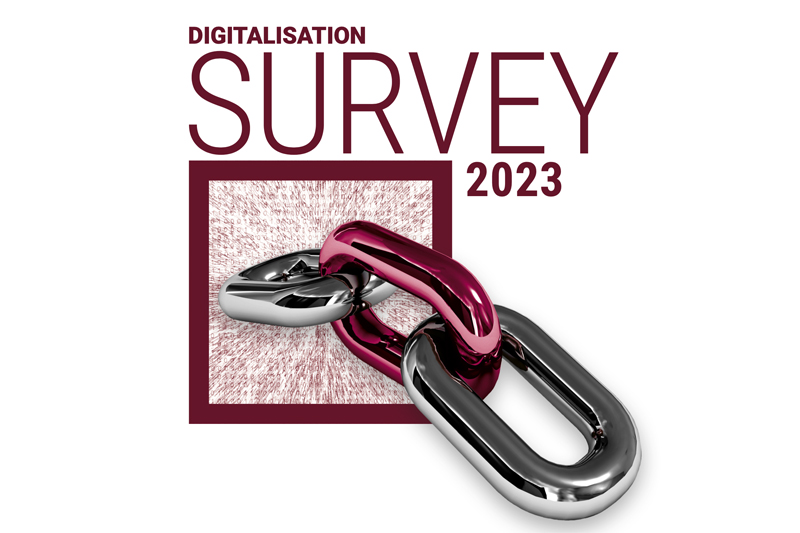Online-only businesses have transformed the speed at which retailers turn over their stock, the ways in which they market to consumers and how they handle logistics. Sam Rutley, Managing Director at PushON, says that there is huge opportunity in the ecommerce market.

For organisations that sell directly to other organisations – like electrical wholesalers – the shift to recognising the importance of ecommerce has been a little slower. Traditional in-store, sales rep and catalogue sales channels have remained prominent. But the landscape is changing. Up to 93% of B2B consumers1 – which includes, of course, electrician businesses shopping at wholesalers – say that they prefer to shop online, with self-serve information, direct from vendors.
Why the shift? As ecommerce technology has evolved, online retail in all sectors has gone from being (potentially) cumbersome and clunky, with long waits for shopping, unexpected delivery charges, complicated or convoluted returns and poor stock management, to smooth, streamlined and cost-effective. A well-managed online retail operation – whether B2C or B2B – can now offer its customers convenience, clarity and outstanding service.
The message for electrical wholesalers is clear – get on board, or miss out on your share of a global B2B ecommerce market which was valued at an enormous $10.6 trillion in 20182 – yet with 80% held in the Asia Pacific region. That indicates some healthy growth possibilities.
The question is, how? What do electrical wholesalers need to do to make their online presence stand out, and to remain ahead of the curve in a space where they are already jostling for position with the likes of eBay, Amazon, and Google?
What does effective B2B ecommerce look like?
Let’s start at the beginning. The basic principles of effective ecommerce are very similar to those of offline commerce: clarity for your customers, with comprehensive product information, easily navigable and searchable stock; smooth, simple and rapid checkout, payment and shipping processes; and a personalised experience, with rewards for loyalty and large or repeat orders.
Customer clarity
For electrical wholesalers, more than for consumer-facing retailers, it is particularly important for product listings to be detailed and thorough, with easy-to-understand and keyword-laden product titles, and with all technical and compliance information front and centre. Electricians, after all, need to be certain that they are buying the right product for the job, and meeting relevant compliance and compatibility standards. Downloadable product pdfs are particularly welcome in B2B settings, so consider incorporating these.
And whilst beautiful product photography and clever styling is less important for an electrical wholesaler than for, say, a fashion website, design still plays a vital role in ensuring that customers can easily view a product and navigate your website smoothly, without getting frustrated. This is likely to involve working with a specialist B2B web developer, or out-of-the-box ecommerce platform such as Magento, or both.
Then there’s mobile compatibility to consider. Over half of all global web traffic is now generated through mobile devices, and Google uses the mobile version of websites when ranking search results. As such, electrical wholesalers must ensure that their ecommerce sites are fully responsive, meaning that they replicate all content across all types of device, automatically adjusting its display and arrangement based on the screen size.
Checkout, payment and shipping
The ability to complete a purchase quickly – often known as frictionless purchasing – is crucial for electrical wholesale customers and may require you to invest in a one-click purchasing tool. It is also important to consider the information that customers are presented with during the checkout process, with a great deal of cart abandonment occurring because of unexpected delivery charges, no advanced delivery options, or an overly long checkout process due to complicated shipping arrangements.
Work hard, then, to display delivery times and costs clearly on all product listings if possible, alongside the price. If they cannot be summarised concisely, provide a clear link to shipping details on the product and shopping cart pages, as well as on the bottom or sidebar of each individual page on your site. Clarity and consistency are key and neglecting them could result in missed sales opportunities. Of course, such clarity and consistency can only be built on the back of a solid logistics process and strategy.
Personalised experience
Turning, then, to personalisation and recognition of loyalty, it is important for electrical wholesalers to both tailor the ecommerce experience to repeat customers and make it easy for said customers to access their account information and make repeat orders where necessary. Online portals can be a powerful tool for enabling electrical businesses to rapidly access their order history, making one-click repeat orders and tweaks where necessary.
Data capture is essential in order for electrical wholesalers to offer product suggestions and even loyalty rewards according to a shopper’s history, and this can be achieved by making it possible for customers to log into the site. From there, they can provide relevant information such as their location, their job role, their favorite products and the type of electrical work they carry out. This insight can enable wholesalers to offer a far richer customer experience, with custom catalogues, customised contract pricing, and segmented product listings according to their specialism.
Some B2B ecommerce platforms also enable intelligent product suggestions based on other products added to a cart, or previous orders, which can enable electrical wholesalers to offer, say, all of the products typically required to complete a certain type of job.
Don’t forget about the value of a personal connection amidst all this digital transformation, however. Ecommerce customers should always be presented with an option for getting in touch with a helpdesk or account manager, for a genuinely human and personalised query resolution.
The global B2B ecommerce market is already huge – and with plenty of space to grow into. According to one set of data it is increasing at a CAGR of 15% (2015-2020)3. Savvy electrical wholesalers have a powerful opportunity to put their customers first, to create smooth, streamlined and cost-effective ecommerce operations, and ultimately to reap powerful rewards.





